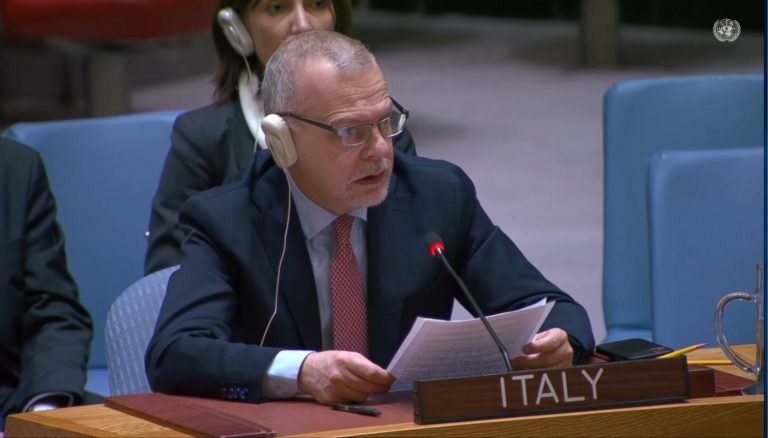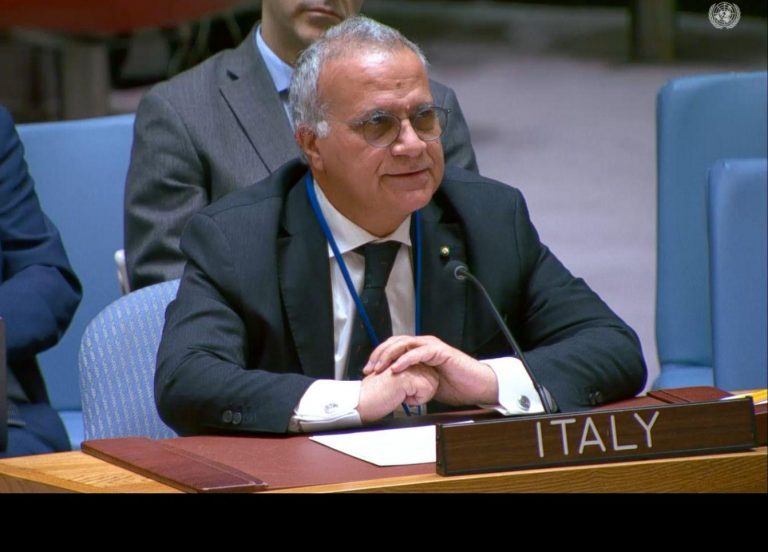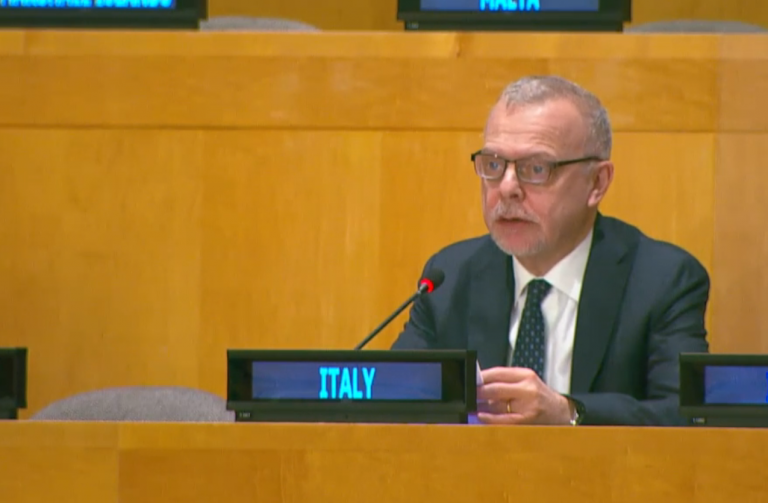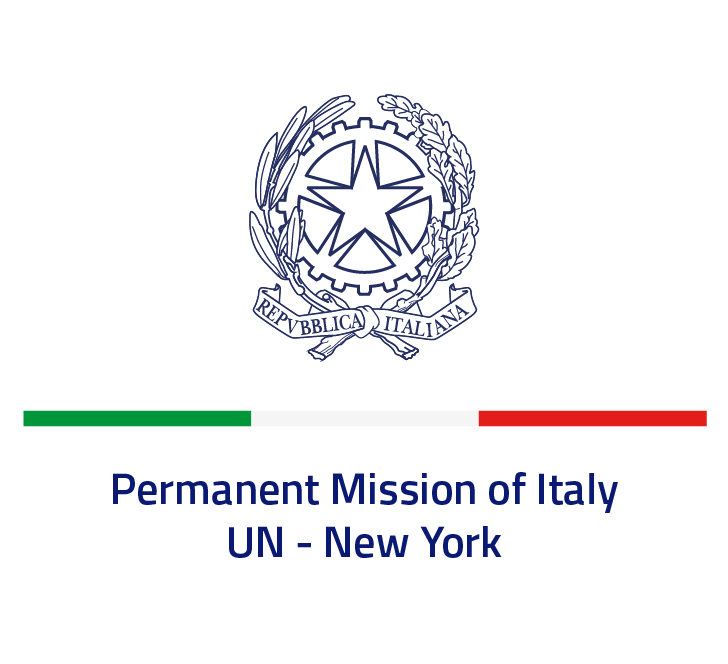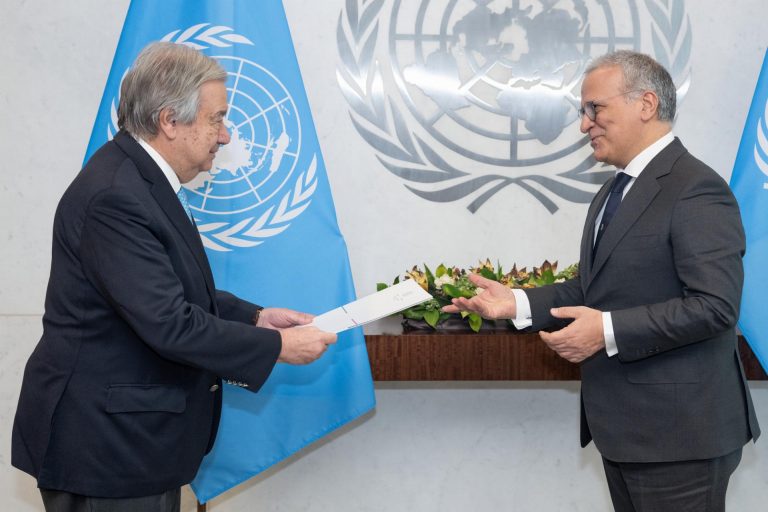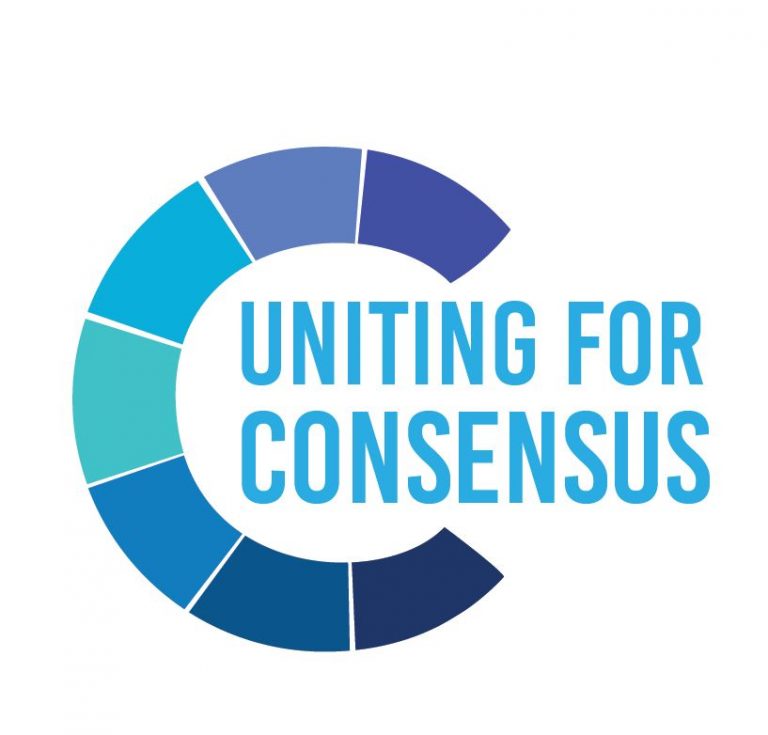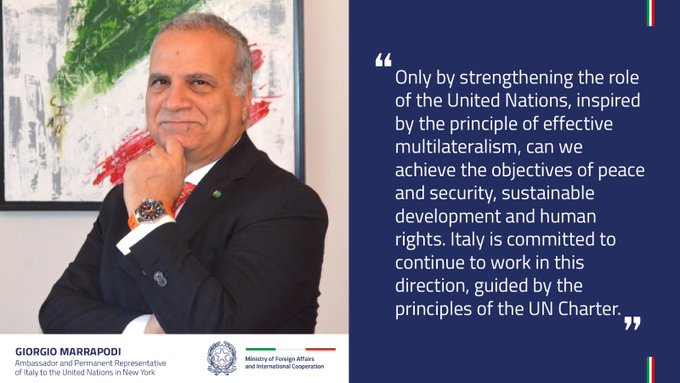Thank you, Mr. President, Excellences, Ladies and Gentlemen,
While aligning myself with the EU statement, I wish to make a few remarks in a national capacity.
1. The fight against new psychoactive substances, is a priority for Italy. In response to the global challenges of the New Psychoactive Substances (NPS), Italy adopted a national action plan and established a national early warning system in 2013 to address the emergence of NPS in a coordinated and timely manner. The decisions adopted by the Commission on Narcotic Drugs on a regular and informed basis are crucial to bringing the most harmful substances under international control. We encourage all Member States, the WHO, the INCB and UNODC to strengthen their cooperation to this end.
2. The growing use of the internet for drug trafficking is a threat especially to young people. To counter this phenomenon we need to strengthen our capacities at every level, also in cooperation with the private sector, making the best possible use of the international legal instruments available, including the Palermo Convention against transnational organized crime. Italy has already launched initiatives, also through information technology, to address this problem effectively. An integrated and balanced response should provide for the use of the internet for prevention purposes.
3. The production and trafficking of counterfeit medicines containing controlled substances is an emerging global threat. While the overall death toll from counterfeit medicines is still unknown, the costs to public health are enormous. Counterfeit medicines expose a clear loophole in the international drug control system and we regret that the UNGASS outcome document does not explicitly address this threat. This phenomenon is a challenge also to law enforcement, since it involves sophisticated international criminal networks. We encourage all Member States and international organizations to strengthen cooperation to tackle this challenge.
4. In the framework of international cooperation to counter the world drug problem, the subdivision into categories is outdated. We have to be more precise in distinguishing between Countries of origin, Countries of transit, and Countries of destination. While this categorization is still pertinent in some cases, it is clearly inadequate in others, as shown by the increasing abuse of drugs in some countries traditionally considered “of origin” or “of transit,” and the production of drugs, in particular NPS, in so-called destination Countries.
5. In this context, we have to monitor very carefully changes in drug-trafficking routes. Italy pays special attention to Africa, which is increasingly involved in drug trafficking from both Latin America and Asia. To this end, Italy monitors the international waters of the Mediterranean Sea through its air and sea units, in cooperation with international bodies (MAOC-N, Europol, CeCLAD-M).
6. We underline the need to elaborate precise indicators for a shared evaluation of the current international drug control system. Italy is ready to involve its structures and research centers to contribute to the highest standards on scientific evidence, including through synergies with the international scientific community, in order to strengthen our methodology of work, allowing us to prepare for the next international commitments on drugs with complete and consolidated data on an increasingly complex and evolving phenomenon.
7. With regard to access to essential medicines, we will continue paying a strong attention to the requests from Member States and UN entities. Italy has technical and juridical know how and capacities to tackle the regulatory and legal obstacles that impair the availability of controlled substances and to strengthen existing medical cooperation programmes.
8. Italy will contribute to the international efforts to address and counter the various aspects of the world drug problem, in line with the principle of common and shared responsibility. On the basis of the outcome of the UNGASS, ahead of the revision of the 2009 Political Declaration, we will continue to do our part in advancing the international drug policy agenda, also as a member of the Commission on Narcotic Drugs, and in close cooperation with the relevant international organizations, including UNODC and WHO.
Thank you.







